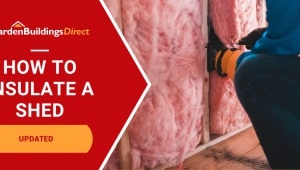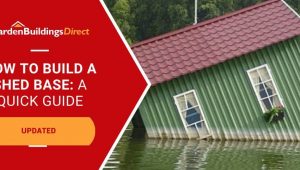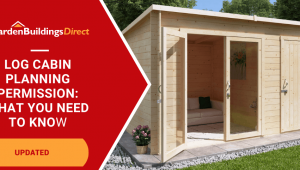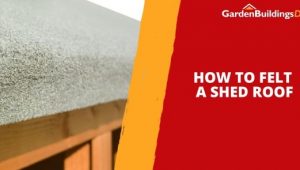Jump to:
When shopping for a garden shed, an increasingly popular option is plastic sheds for reliable outdoor storage. And among plastic sheds, vinyl is an option worth exploring. This guide will explain vinyl sheds and help you determine if they meet your needs.
What Are Vinyl Sheds?
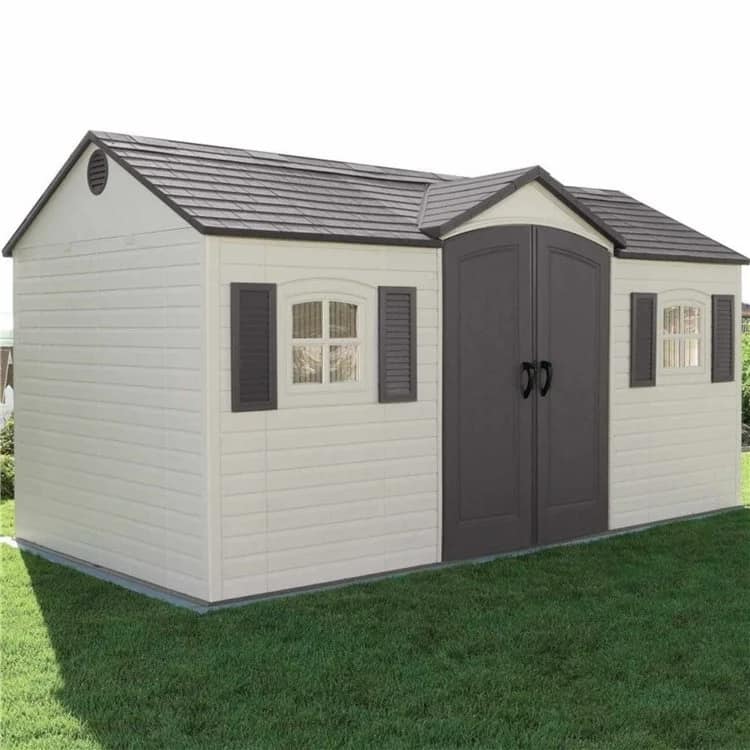
Vinyl sheds are storage solutions made from a type of plastic known as polyvinyl chloride (PVC) or vinyl. This high-strength thermoplastic material makes the shed strong and durable.
Unlike metal or wooden sheds, vinyl sheds do not rust, rot, or require extensive maintenance. They have a long lifespan and are often more affordable compared to other options, too. This variety comes in various colours and styles, making it a practical and attractive investment for your storage needs.
Take our Saffron Apex Plus 10.5x8ft Vinyl Shed, for instance. It features fire, rust, rot and dent-resistant vinyl resin panelling and is available in anthracite colour. Plus, it comes with a 15-year protective manufacturer warranty, guaranteeing long-lasting use!
The Benefits
We’ll explore the benefits of vinyl sheds in detail to help you decide if vinyl is the right material for your garden shed.
1. Durability
Durability is the foundation for any shed’s longevity, and vinyl sheds excel in this area. As mentioned, the vinyl material is exceptionally resistant to rot, rust, and pests. Vinyl sheds can maintain their structural strength even in the face of the UK’s harsh weather.
2. Low maintenance
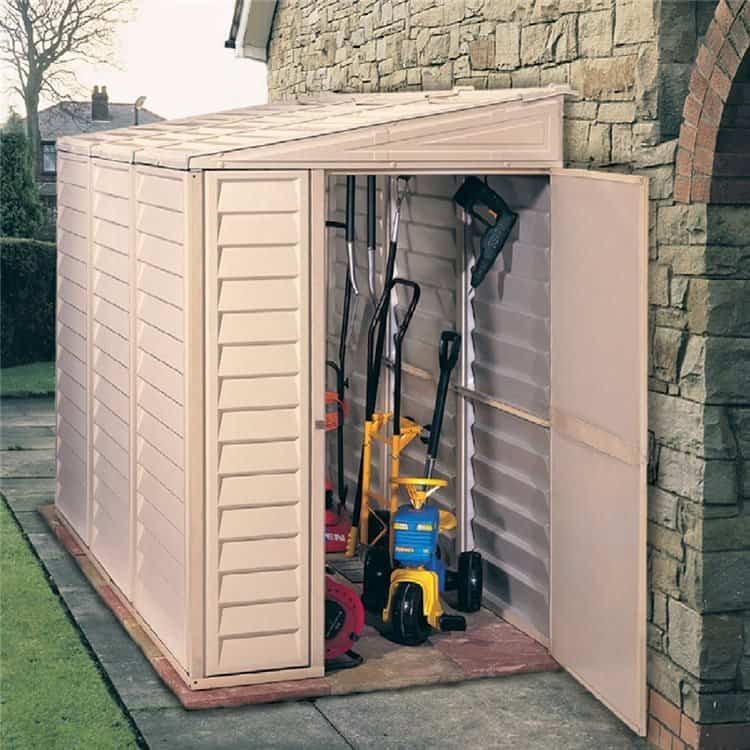
Vinyl sheds’ minimal maintenance requirements can save you time and effort. These structures only need occasional cleaning with soap and water. There is no need for regular staining or painting, as you would normally do for timber and metal sheds. This advantage not only spares you valuable time but also reduces long-term costs.
3. Weather resistance
Vinyl sheds are designed to withstand the elements and unpredictable British weather conditions. They offer resistance to high temperatures, heavy rain and snow, and strong winds. This gives you peace of mind knowing whatever items you stored are safe and dry, no matter the weather.
4. Sustainable
Vinyl sheds are sustainable, as the plastic materials used are usually made from recycled sources. This inherent sustainability results in a minimal environmental impact in terms of CO2 emissions compared to metal. Investing in one can mean a step towards contributing to a greener future for our planet. While this impact may seem insignificant individually, collectively, it can make a difference.
Vinyl Sheds vs Wooden Sheds
When talking about shed material, you’re looking at what makes up the exterior of the shed itself. Here, we compare vinyl and wood options in terms of maintenance and moisture risks.
Maintenance work
You’re getting a shed for storage convenience, so it helps to know the upkeep required to keep it functional for years. The exterior of a vinyl shed mainly requires proper care and cleaning, yet it can last longer. In contrast, a wooden shed often requires repairing or restaining annually or whenever needed to remain in good condition.
Tips: Prepare your own cleaning solution with warm water and dish soap or vinyl cleaner. After the shed has dried completely, apply a vinyl protectant or UV-resistant coating for added shine and protection.
Moisture risks
There’s no question that vinyl is the best material for stopping rot and mould. It doesn’t absorb water like wood does, so its non-porous nature prevents water from seeping in. With no moisture present, the conditions for mould and rot to thrive are non-existent.
Vinyl Sheds vs Metal Sheds
Both vinyl and metal sheds are durable and long-lasting, but vinyl’s rot resistance makes it a strong contender. As plastic-based structures, vinyl sheds don’t absorb water, unlike their metal counterparts. This, in turn, helps prevent issues such as rust and corrosion. Moreover, vinyl sheds are typically lighter in weight, offering easier installation and transportation.
Round-up
When deciding which shed to buy, consider the benefits of vinyl sheds. They’re durable, low-maintenance, lightweight, and sustainable — qualities that are worth investing in. Shop our plastic storage sheds for more options!
Up next on your reading list: Do Plastic Sheds Need a Base?
